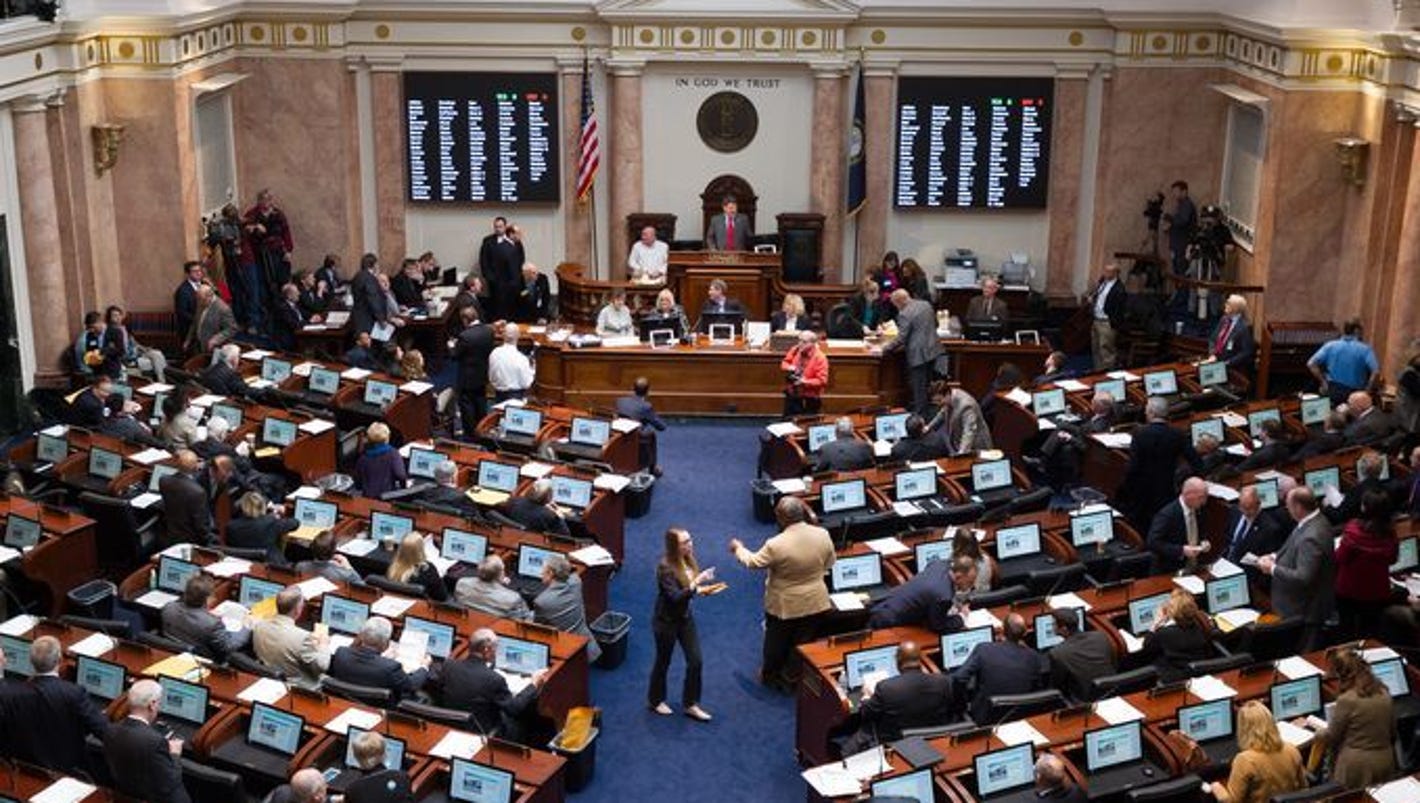Senate committee advances racially charged gang bill despite opposition from African American leaders
FRANKFORT, Ky. — Despite impassioned opposition largely from African American leaders, a bill aimed at cracking down on criminal gang activity advanced through a Senate committee Tuesday even as members voting for it expressed reservations.
“This is a major change in our criminal justice law,” said Sen. Ray Jones, a Pikeville lawyer and Senate Democratic minority leader.
Jones added he was not sure he would support it when the full Senate votes on the bill, likely later this week.
House Bill 169 has the support of law enforcement, including Louisville Metro Police and Kentucky State Police, as well as Louisville Mayor Greg Fischer, though Fischer’s support was met with dismay by civil rights leaders, including Sadiqa Reynolds, president of the Louisville Urban League.
“I’m disappointed,” Reynolds said after the one-hour hearing before the Senate Judiciary Committee passed the measure on an 8-0 vote.
Reynolds, Pastor Edward Palmer, a long-time leader in juvenile justice issues, and several others spoke passionately against the bill in part because they said it would have a disproportionate impact on poor neighborhoods and minority youths.
“This bill is textbook justice by geography,” said Palmer, senior pastor of Sign of the Dove Ministries in Radcliff. “House Bill 169 will dramatically increase the prison population over the next decade, and that increase will be disproportionately experienced by communities of color.”
But supporters, including Rep. Robert Benvenuti, a Lexington Republican and sponsor of HB 169, said it is needed to prevent gang violence in communities across Kentucky.
“It tells gang members we no longer have the welcome mat out for them,” he said.
Louisville Police Lt. Col. Rob Schroeder said his department and the mayor believe the bill is needed, adding “gang violence is very real.”
But opponents, including Reynolds, said the bill is too broad and will allow law enforcement to focus on poor, urban areas and target young people based on their neighborhoods and associates.
“I would beg this body not to make a mistake in enforcement that creates more problems,” she said. “Table this … until you can think through what else has to be done to really eliminate gangs in our community.”
The bill elevates lesser offenses to more serious ones if gang activity is shown to be a factor. It makes gang recruitment a felony rather than a misdemeanor for adults and requires gang members convicted of violent crimes to serve 85 percent of their sentence before parole is an option.
It also carries a price tag of $19.5 million, mostly for increased prison costs. Opponents pointed out that it includes no funds for services to help troubled youths or for gang prevention.
“Please don’t let anyone tell you we are doing enough,” Reynolds told the committee.
Committee chairman Sen. Whitney Westerfield, a Hopkinsville Republican, acknowledged the bill is flawed, in part because it includes no additional funds for communities to help steer youths away from gang activity.
But he said he insisted on several improvements in the House version of the bill. For example, it tightens the definition of gang activity called vague by critics.
And it limits circumstances in which youths under 18 can be prosecuted as adults under the gang bill, which Westerfield said was important to him because of his concern about the disproportionate number of minority youths being prosecuted as adults.
While no committee members voted against it, two members voted “pass,” meaning they cast neither a yes nor no vote.
Sen Joe Bowen, R-Owensboro, said he has too many questions about the measure’s impact to vote yes, as did Sen. Robin Webb, D-Grayson.
“This bill needs some work,” Webb said.
The measure now goes to the Senate for a vote. If approved, it will return to the House, which must approve the changes made by the Senate committee.
Deborah Yetter: 502-582-4228; [email protected]; Twitter: @d_yetter. Support strong local journalism by subscribing today: www.courier-journal.com/deborahy
Source: Kentucky anti-gang law wins Senate vote despite racial bias warnings

